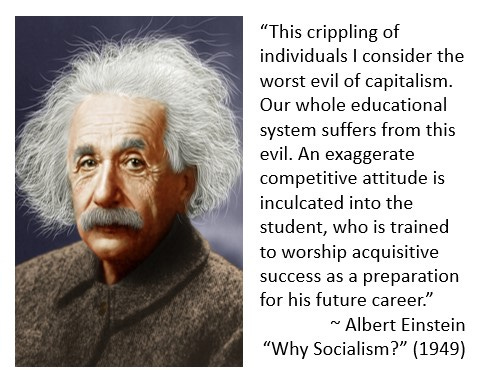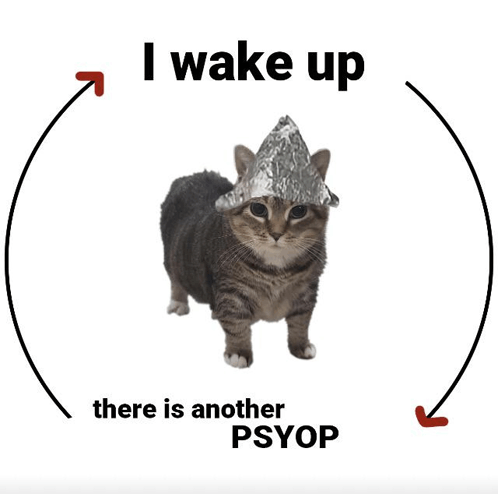What is this Pokemon? There are many reasons to potentially move there the landscape and weather depending on where you move (and if you live somewhere with [BEEP] weather like the UK,) for starters.Who's coming to America to escape competition? I came to America to compete and work with the best. Why else would you even come here?
Also as French symbolist author Rachilde once said:
But replace man with American seeing as everyone online is constantly exposed to US news and politics. British YouTube channels I watch will use Americanisms so Americans understand what they are saying and talk about the US election and politics more than the UK, people automatically translate their dialect of English for Americans. And basically the entire Internet really is functionally American... Except the South Korean and Japanese parts.I always regretted not being a man, not so much because I value the other half of mankind but because, since I was forced by duty or by taste to live like a man, to carry alone the heavy burden of life during my childhood, it would have been preferable to have had at least the privileges if not the appearances.[1
I had more thoughts about Vivek's comments though actually:
I know this is scary (and controversial,) because of the power and influence tech has but unless you import China into the US (which is already your current plan more or less,) in my opinion you are never going to win this competition:"Normalcy" doesn't cut it in a hyper-competitive global market for technical talent. And if we pretend like it does, we'll have our asses handed to us by China
Yes about artists...You say "A culture that celebrates the prom queen over the math olympiad champ, or the jock over the valedictorian, will not produce the best engineers."
I say "A culture that celebrates engineers over artists or power over morality will not produce the best people."
Name a great Chinese band, or TV show, or film, or video game. I can think of like one film. It's not just because it's non Western because I could give a bunch of answers for Japan.
Possibly because of the extreme rigidity and conservatism and obsession with narrow forms of success.
China's controlled society, with lack of freedom of speech and expression, propaganda and censorship, together with an education system that emphasises rote learning and memorisation have been judged to limit creativity and the development of new ideas.Very intelligent/high achieving and large population... Where is any new form of creative output really?"Most Chinese start-ups are not founded by designers or artists, but by engineers who don't have the creativity to think of new ideas or designs," argues Jason Lim, an editor at the website TechNode. Others blame the government for the unprecedented scale of its failure to protect intellectual property rights.
Why are there so few Chinese musicians/artists that get mentioned?
I feel like a country with 1.4 billion people would've had some hits or maybe I'm mistaken?Really?I can imagine a couple things, first off there's a language barrier, so already there's a disadvantage.
I have a playlist full of hundreds of Japanese songs also probably like 30+ South Korean songs. I've seen two (I think?) Japanese bands live in the UK. Lots of other non English music too. Some in entirely made up languages, some that are unintelligible by design.
I can think of three Icelandic bands/musicians off the top of my head (and there may be more I've forgotten.) Despite the population size of that country being just slightly larger than my town. Of course the most famous (Bjork obviously,) sings in English but the other two (Solstafir, Sigur Ros) sing in Icelandic and a made up fictional language 'Hopelandic'
China has like a billion people and I can't think of a single Chinese music track except that one Chinese rapper who blew up on social media because he was telling foreigners to [BEEP] off and leave China or something hahaha. And it was a bad track. It was not good.
Because again:
1. The culture appears to discourage creativity
2. Whatever they do create is either censored or can't be distributed easily. Obviously their citizens are officially blocked from using most Western websites where people generally go to discover music.
Look this guy is even looking for music from mainland China and is struggling:
It seems that European success has always come from sporadic genius, often creative. It requires you to be both intelligent and have a certain set of personality traits (like a guy who is performing well in school due to high intelligence but drops out ignoring what everyone around him tells him and does something else.) Actually while searching I found an anecodote coincidentally of the personality combination I'm talking about lol:Trying to find mainland Chinese music
I've been trying to find/listen to mainland Chinese music because I've heard a couple mainland Chinese songs before and I want to listen to more. I have seen YouTube and Spotify playlists, but they're always made in Hong Kong or Taiwan. I've even downloaded QQ Music, the Chinese equivalent of Spotify, but I still cannot find anything in mainland china. Please help?
Let's begin with an example. Some 20 years ago, when I was still working for an optics company in California, we ran into a little challenge, we wanted to make a mechanical part that responded to surrounding temperature based on coefficient of expansion. I'm not getting into details, so long story short, we want this part to be able to offset, along with other parts, to a desirable degree, errors introduced to the system due to temperature. Now 100μm of difference may sound completely insignificant to you but if we are talking about lasers devised to work miles or even hundreds of miles away, it's a major difference.
At first we thought we need outside help on this one. We even tried to hit up a company in Hamburg. The thing was, if we sub this job to somebody else, the budget would have to go up, which means diminished profits, but if we don't do that, no one at our company, or so at least we believed then, would be able to produce it. So one day we had a tech dropped in on our discussion. He proposed that he was going to try to get one done. None of us took him seriously, but since we thought it couldn't hurt for him to just try, we explained to him what we tried to accomplish, and what the problems were.
A week later, he came to us saying that he might have figured out a way to do it and made a component to our specs. Again, nobody took him seriously but nevertheless since he presented us his work, we took it to the labs and run the tests.
It was no good. No surprise there. But what really, really amazed us was that all the properties came pretty close, like, inhumanly close to our requirements. We didn't have the equipment to get that close, so how did he do it? Turned out he rang one of his favorite highschool teacher, did all the calculation, and went for the kill. The project was eventually dead but I took a keen interest on this individual. I befriended him and over a course of several years I discovered that he was a high school dropout, his father was a radio operator or something in the navy and mother was Mexican and a full time housewife. In other words, he had no background in hard science, nor did he in manufacturing, CNC etc, other than several years of hands on experience and personal interest.
That could never happen in China.^ I think this does come at the cost of some pretty 'maladaptive' you could say behaviour like aggression, violence, economic failure, drug use and so on in the same population when individuals are less intelligent or less prosocial and just have similar personality traits (exists everywhere but rate will vary,) creativity can exist in art and also in criminality (see the state of Florida)..I wrote an entire book about how both Black and very many white Americans have obvious cultural pathologies - just check the homicide, suicide, OD, and OnlyFans participation rates - that hamper academic performance. Virtually this entire page agreed.
We can't now pretend that's NOT true because an Asian guy said it, bluntly.
Yeah I linked too many of these screenshots but there's a bunch of entertaining ones:
This guy literally showed the police a mixtape of his rap music instead of his license LOL:
Florida Man (tm) is prolific:
https://www.boredpanda.com/hilarious...-man-headings/
Probably because of the increased high risk/high reward tendencies. If you try and force cultures that are descendant populations like this to perform like China I think there's a strong possibility they will fail without genetic engineering.
He seems to think it's purely cultural I don't really but there's not a clear conclusion to that debate. It seems obvious that personality is genetically heritable though to some degree at least:
https://www.nature.com/articles/s41380-018-0263-6
Which will alter group averages in performance and productivity. Conscientiousness is important for a lot of jobs but some aspects of that personality trait get in the way of creativity:Human personality is 30-60% heritable according to twin and adoption studies. Hundreds of genetic variants are expected to influence its complex development, but few have been identified.
https://pubmed.ncbi.nlm.nih.gov/15647135/
https://digitalcommons.unomaha.edu/c...xt=psychfacpub
https://www.sciencedirect.com/scienc...92656610000061Comparisons on personality traits were made on 3 sets of samples: scientists versus nonscientists, more creative versus less creative scientists, and artists versus nonartists. In general, creative people are more open to new experiences, less conventional and less conscientious, more self-confident, self-accepting, driven, ambitious, dominant, hostile, and impulsive. Out of these, the largest effect sizes were on openness, conscientiousness, self-acceptance, hostility, and impulsivity. Further, there appears to be temporal stability of these distinguishing personality dimensions of creative people. Dispositions important to creative behavior are parsed into social, cognitive, motivational, and affective dimensions. Creativity like most complex behaviors requires an intra- as well as interdisciplinary view and thereby mitigates the historically disciplinocentric attitudes of personality and social psychologists.
The positive relationship between conscientiousness and job performance appears to be robust for individuals and groups across most contexts. This research examined the possibility that this positive relationship might reverse in groups engaged in a creative task. In Study 1 (N = 55 four-person groups), a significant negative relationship was observed between group conscientiousness and group performance. To test our hypothesis that this effect is driven by the activation of maladaptive or adaptive behaviors for high vs. low conscientiousness groups (respectively), in Study 2 (N = 59 four-person groups), we manipulated task instructions to make the approach to the task appear more "flexible" or "structured." Task instructions interacted with group conscientiousness, and provide support for this theoretical explanation.The literature on creativity highlights the incompatibility between systematic and structured approaches to creative tasks and creative output. For example, Taggar (2002) maintains that creative tasks require a more nimble thought process, the ability to take new perspectives, and flexibility in the approach to problem solving "carried out via discovery rather than via a predetermined step-by-step procedure" (p. 315). Similarly, Simonton (2003) notes that creative outcomes are more likely to occur when a certain amount of chance, randomness, or unpredictability are infused in the process. Low conscientiousness individuals and groups might adopt less planful and systematic approaches to creative tasks, which, ironically, might result in better task performance.So this kind of insane thing where you do something like this obsessively over and over again despite not getting any money for it is very discouraged in Chinese culture I believe, and a lot of non Western cultures really because you are expected to be economically productive, and guilted into making a certain amount of money in a certain job to do that (imagine a Westernised parent looking down on astrophysics. It's hard to picture,) and not off doing eccentric things and wasting time.Conscientiousness and Creativity: An Uneasy Relationship.
In general, creativity isn't strongly linked to conscientiousness. This makes intuitive sense because creative people rely more on spontaneity, which isn't exactly one of conscientiousness's strongest points. Surely creative people have to think outside the box (for want of a less jingoistic term) and break the rules, not blindly obey instructions and colour within the lines? Openness is the trait choice for the creative type; the desire to explore and experiment, daydream and engage in deep and meaningful dialogue.
That said, surely creative people are still hardworking and persistent? After all, you don't become a published writer without doggedly sending that award-winning manuscript to every publisher in the Writers and Artists Yearbook. Vincent van Gogh is said to have created nine-hundred paintings and over a thousand drawings and sketches. When we take into account that he only ever sold one painting in his entire lifetime, it's difficult for us to accuse him of not being a persistent fellow.
And this is pretty much what the research has discovered. Creative people tend to score highly on the achievement component of conscientiousness but low on the dependable component; they are equally hard working and reliable, they just don't like to be tied down by rules and regulations. It would, therefore, appear that skills like academic buoyancy are perhaps more closely related to a particular component of conscientiousness rather than the entire trait.
Today I started reading a Star Trek fanfic it's very good - like 'perhaps this person is a published writer' good (a lot of fanfics aren't that good,) and this person is just publishing this and many other fanfics online for free (lots of people obviously do. Economics are so removed from their brain and they like the universe so much they're just uploading free fiction) and most fanfics on AO3 etc are written by Western people tbh and white people on top of that. This gets people complaining about like the lack of diversity in fanfiction writers and their work and how the demographics of being mostly white women reflects the Western publishing industry (do you really want other people to be doing free labour though lol? There's another side to this story...)
But honestly the barrier to entry is so low unlike the publishing industry. You just upload a story to a website and I guess make sure none of the topics conflict with terms of service of the website (but I don't think there are many rules on AO3. They even allow real person fanfiction.) The lack of other demographics writing/reading is really more about I guess interest in the things being written about and other personality/cultural stuff. I mean when I was at school it was quite an uncool thing to do and the few occasions it came up people would act like reading fanfiction was really weird. I stumbled on it online randomly as a teenager and started reading and sometimes writing stuff then (before AO3 so on fanfiction.net and livejournal and other sites and forums that had fanfiction sections etc.)
So again you get all these obsessive fans that just fixate on and write about whatever fandom they are into. Without thinking about money.
Living like a boxcar hobo with lettuce in your hair maybe:
The line just popped into my head lol.
"Lemon what tragedy happened in your life that you insist upon punishing yourself with all this mediocrity?"
"What because I'm eating a turkey sub?"
"The turkey sub, your clothes, the fact that a woman of your resources and position lives like some boxcar hobo. Or maybe it's the fact that while I'm saying all this you have a piece of lettuce stuck in your hair."
Western people like creativity a lot more because of their personalites I think, and consequently this sort of thing sometimes happens which would be completely unheard of in China I'm sure:
Van Gogh's paintings sold poorly during his lifetime, and he only sold one painting for $109. His brother had to finance most of his career.The most comprehensive primary source on Van Gogh is his correspondence with his younger brother, Theo. Their lifelong friendship, and most of what is known of Vincent's thoughts and theories of art, are recorded in the hundreds of letters they exchanged from 1872 until 1890.[8] Theo van Gogh was an art dealer and provided his brother with financial and emotional support as well as access to influential people on the contemporary art scene.[9]He moved to Antwerp that November and rented a room above a paint dealer's shop in the rue des Images (Lange Beeldekensstraat).[98] He lived in poverty and ate poorly, preferring to spend the money Theo sent on painting materials and models. Bread, coffee and tobacco became his staple diet. In February 1886, he wrote to Theo that he could only remember eating six hot meals since the previous May. His teeth became loose and painful.[99] In Antwerp he applied himself to the study of colour theory and spent time in museums--particularly studying the work of Peter Paul Rubens--and broadened his palette to include carmine, cobalt blue and emerald green. Van Gogh bought Japanese ukiyo-e woodcuts in the docklands, later incorporating elements of their style into the background of some of his paintings.[100] He was drinking heavily again,[101] and was hospitalised between February and March 1886,[102] when he was possibly also treated for syphilis.[103][note 7]There was never any guarantee of this paying off btw.It is true that when Van Gogh was a preacher in the coal-mining area of the Borinage he lived a life of miserable poverty. But once Vincent set out to become an artist, his brother Theo supported him with a regular financial allowance. In Arles, for instance, he received around 2,500 francs (?100) in his first year. Vincent was not poor, but the problem was that he was terrible at managing money.
As I said this isn't enough on it's own to really get anywhere you also need to be pretty intelligent I think, but the same personality in someone who does not have the other prerequisites will generally end up experimenting more in other areas of life including drug use and sexual stuff (people who are very succesful often do too but are still successful.) If you then try and force someone who is like this to perform within a system they'll just come to resent the system, and then write a famous song about that one day or alternatively not suceed at all because of (again) personality:
I sit in the state of a daydream
With all of your words flying over my head
Even more time gets wasted
In a daze
Maybe I'm just too damn lazy
Or maybe I was just brainwashed to think that way
And all of your time gets wasted
In my daze
It's very clear.
As is the psychedelic art doodles student at 49 minutes into this video:
"Being around that many white kids that was new and moreover this was my first experience with white poverty. I knew white poverty was a thing of course but I hadn't engaged with kids who were legit living in trailers, whose parents were meth heads, who suffered under late capitalism just like the black kids I had taught."
"I had this one kid who was brilliant. He was a type of kid that would sleep through your entire class, wake up and then get 100 on your quiz. I would hand him instructions for an assignment and at the end of the class instead of handing me the assignment he would hand me back instructions with psychadelic art doodles all over it.
"I made enough of an impression on this kid that years later he looked me up on facebook. Instead of being in college being brilliant he had got into landscaping or something and it was cool we had a chat or two. He was one of many students that I kept contact with from that school and I'm pretty sure he was the second to commit suicide. In my ten years of teaching I've lost maybe a dozen students either during school like while they were in school or in the preceeding years. And around half of that number is from this one year that I taught at this white school. The black students I've lost have been to accidents, one was murdered, one did complete suicide after committing a felony. But most of that 12 - white kids - white boys in particular - almost all of them suicides with an overdose or 2 mixed in. This experience has always haunted me. I don't blame myself per se cause I was only there for a year but I just can't imagine how so many kids from one school could be gone before 25 from self harm. I've talked and worked with some black boys and men in the most dire of conditions, coming from the most toxic environments and I had a solid understanding of what that looked like, and how that worked and what to do but for these boys I just didn't get it, still don't get it.
Kids like this are one of the personality groups who do incredibly poorly within the education system especially if they're less intelligent (which it seems potentially this kid wasn't since he suggests he'd get decent grades despite sleeping in class etc,) since they can't focus and it tends to have a detrimental effect on their entire life but being more neurotic on average (correlates with artistic creativity eg: the doodling,) mental health issues are a risk anyway.
When the school system crushes creativity (which it does) it makes it harder for people like this to succeed even though it's incredibly hard to do so in the first place regardless but they can't easily do anything else.
Meanwhile if you remove most of the low skilled jobs that don't require much education by automation, a lot of people will have nothing to do and will not turn into tech experts, doctors lawyers etc.
And the kind of spiritual nihilism we have is causing lots of problems too regarding existential apathy, mental health issues and so on.
I think part of the cultural creative decline in Western countries also stems from increasing risk aversion and self censorship plus promotion of STEM jobs over the past few decades (I know it was a big thing to promote tech jobs and the importance of tech and higher education when I was growing up in the 2000s.) In the UK. I imagine the US probably has shifted in a similar direction.
And the US still (probably) won't beat China in STEM.
I'd personally like it if art doesn't die out globally in the same way femininity has been devalued in the West because everyone decided STEM (and masculinity,) was the only important thing in the universe but thats just me.
That being said it's possible to have an East Asian culture that creates decent art because Japan exists but I'm guessing they reached that goal of creating the best animation and amazing video games like Final Fantasy VII in their own way. The education system and culture is still very different there from the West though.
In saying that... They have a lot of things like Chindogu:
Chindogu (珍道具) is the practice of inventing ingenious everyday gadgets that seem to be ideal solutions to particular problems, but which may cause more problems than they solve. The term is of Japanese origin.[1]This is quite silly, not very serious. They also have a lot of bizarre eccentric TV shows. There's lots of stuff that seems to encourage random eccentricity despite being a confucian culture.Literally translated, chindōgu means unusual (珍, chin) tool (道具, dōgu). The term was coined by Kenji Kawakami, a former editor and contributor to the Japanese home-shopping magazine Mail Order Life. In the magazine, Kawakami used his spare pages to showcase several bizarre prototypes for products. He named these gadgets "chindōgu"; Kawakami himself said that a more appropriate translation than "unusual tool" is "weird tool". This special category of inventions subsequently became familiar to the Japanese people.
Why? And to do this you obviously have to not care about seeming weird/silly.
I'm not sure how they blended these things together culturally...
https://magazine.wsu.edu/2014/04/29/...-modern-japan/
The Aesthetics of Strangeness: Eccentricity and Madness in Early Modern Japanhttps://uhpress.hawaii.edu/title/the...-modern-japan/Eccentricity and odd artistic behavior in the Edo period of Japan (1600?1868) proliferated as an aesthetic subculture that both resisted the rigidity of the Tokugawa realm and served as a source of moral and cultural values.
Consider the story of Striped Kanjuro. A "harmless oddball" immortalized in the annals of strangeness from the Edo period, his home was painted entirely in stripes, he only wore striped clothing, and he even cut his food into stripes. But rather than being just a deviant, Brecher points out that Kanjuro's idiosyncrasies fit with important writers and artists of the time as they became part of the mental landscape of Japanese society.
Interesting. I'm sure I could spend a long time researching this lol but not going to. But obviously the potential for that was there and showed up throughout history.Eccentric artists are "the vagaries of humanity" that inhabit the deviant underside of Japanese society: This was the conclusion drawn by pre?World War II commentators on most early modern Japanese artists. Postwar scholarship, as it searched for evidence of Japan's modern roots, concluded the opposite: The eccentric, mad, and strange are moral exemplars, paragons of virtue, and shining hallmarks of modern consciousness. In recent years, the pendulum has swung again, this time in favor of viewing these oddballs as failures and dropouts without lasting cultural significance. This work corrects the disciplinary (and exclusionary) nature of such interpretations by reconsidering the sudden and dramatic emergence of aesthetic eccentricity during the Edo period (1600?1868). It explains how, throughout the period, eccentricity (ki) and madness (kyō) developed and proliferated as subcultural aesthetics. By excavating several generations of early modern Japan?s eccentric artists, it demonstrates that individualism and strangeness carried considerable moral and cultural value. Indeed, Edo society fetishized various marginal personae--the recluse, the loser, the depraved, the outsider, the saint, the mad genius--as local heroes and paragons of moral virtue. This book concludes that a confluence of intellectual, aesthetic, and social conditions enabled multiple concurrent heterodoxies to crystallize around strangeness as a prominent cultural force in Japanese society.
There's a 'cat island' (I stumbled on two documentaries about Japan on Amazon prime days ago about Japan and cats lol, one was created by a YouTuber abroadinjapan who I watched some videos from a decade ago and seems to have become a lot more popular in recent years):
^ This is not the island I was thinking of. There are cat islands lol. I was thinking of Tashirojima. There were some cat themed houses built there but the manga artist died before he could move in.
There's something interesting about people who really like cats:The island is also known as Manga Island, as mangaka Shotaro Ishinomori planned to move to the island shortly before his death. There are manga-themed lodges on the island, resembling cats.[5]
https://www.theguardian.com/lifeands...e-a-cat-person
I don't know if this is a side effect of toxoplasmosis at all or not but either way this seems to correlate with what I'm noticing. Though a lot of these studies are only carried out in 'WEIRD' populations. So Western.The social psychologist Samuel D Gosling of the University of Texas has studied the personality traits of self-identified "dog people" and "cat people". He found that cat lovers score higher on neuroticism and openness to experiences, whereas dog people are more extroverted, agreeable and conscientious. "I wasn?t surprised by the findings," he says. "If you think about the role that dogs and cats play, they afford different types of interaction. If you like to go walking and get out and about, a dog is a more obvious choice. But if you are more introverted and like to sit in a chair and spend time at home, cats demand less social interaction."
But this is not to say that cat owners aren't interested in the world around them. Far from it. Rather, they contemplate nature?s ineffable mysteries not on a muddy trudge through the park, but from the comfort of their own homes. ?Openness,? says Gosling, ?is about ideas and intellect. People who are high on openness tend to be more abstract thinkers, and more creative and imaginative and philosophical.? Not for nothing is the philosopher with a cat on their lap a beloved internet meme.
Perhaps populations who love cats tend to be more creative then? It would explain ancient Egypt and myths about cats being aliens who taught Humans how to do things - I may have invented that in my head but I'm going to pretend it's true in the spirit of this post.
But Vivek brought up China because they excel at certain things he cares about.
This is funny because I was just reading a post on the china subreddit about someone who's parents had disuaded them from getting a job as an astrophysicist:China is also a leader in agricultural, plant, and animal sciences, mathematics, and information science. However, China is behind other countries in clinical medicine, astronomy, and astrophysics.
This study by Brecher, an assistant professor of Japanese language at Washington State University, delves into the complex role of oddballs and eccentrics as sources of artistic innovation and eventually as an influence on Japanese society.
Those things are important but reducing US culture to '5 random 90s TV shows' is... Ridiculous really. Like the cultural problems were created by watching Friends, cartoons, some kids shows I've never heard of despite growing up mostly watching US TV, and hanging out with friends. Nonsense really (I don't think he has to worry about kids hanging out with friends these days either lol, they don't hang out with friends irl so much these days, or have friends at all in a bunch of cases.)And that's one of the saddest things to me here. I know a kid who is absolutely thrilled about the prospect of becoming an astrophysicist (and is fucking brilliant and could likely do it without question), but his parents refuse and are forcing him to study business (which he deplores...as do I, despite my degrees and career to the contrary).
By the way, good on you for following your dreams of photography. It's been a lifelong passion of mine and I absolutely love it (though, I recently made the costly mistake of getting into underwater photography...fuck me that shits expensive).
I actually think that 'prom queens' and jocks and people like that have been greatly devalued in entertainment and storytelling in recent decades and often framed antagonistically mostly because creative people who write TV shows etc, while not being nerds, never fit in with that crowd either back in school. So that seems irrelevant.
The idea that the US has to be the best at everything or better at China at everything is kind of insane. But it demonstatably is better than China at many things already but this comes from a kind of awareness that people are not cooperating well in a globalised economy etc. It's not really a healthy form of competition it's like:
"We have to be the best at this because if we're not China will gain more power and then oppress us with AI and evil robots."
I think there's a far more deep rooted problem here and it's not that the US population aren't amazing at tech and hypercompetitive.
Well don't take my word for it:
Well, at least before then they won't invent artificial wombs first, probably:
I wonder if Germany will be the first to create a working artifical womb?Germany
The world's first artificial womb facility, EctoLife, was launched in Berlin in December 2022.
The team hope to have a working prototype of their artificial womb ready for use in clinics within five years - meaning it could be a world first. The funding has come from the Horizon 2020 EU programme.
According to the charity Tommy's, babies born before 22 weeks have almost no chance of survival, while at 22 weeks the chance is only around 10%. But just two weeks later, survival rates rise to about 60%. Oei said that at present, about 1 million babies worldwide die due to prematurity, while those that survive are at risk of a range of disabilities.











 Reply With Quote
Reply With Quote




